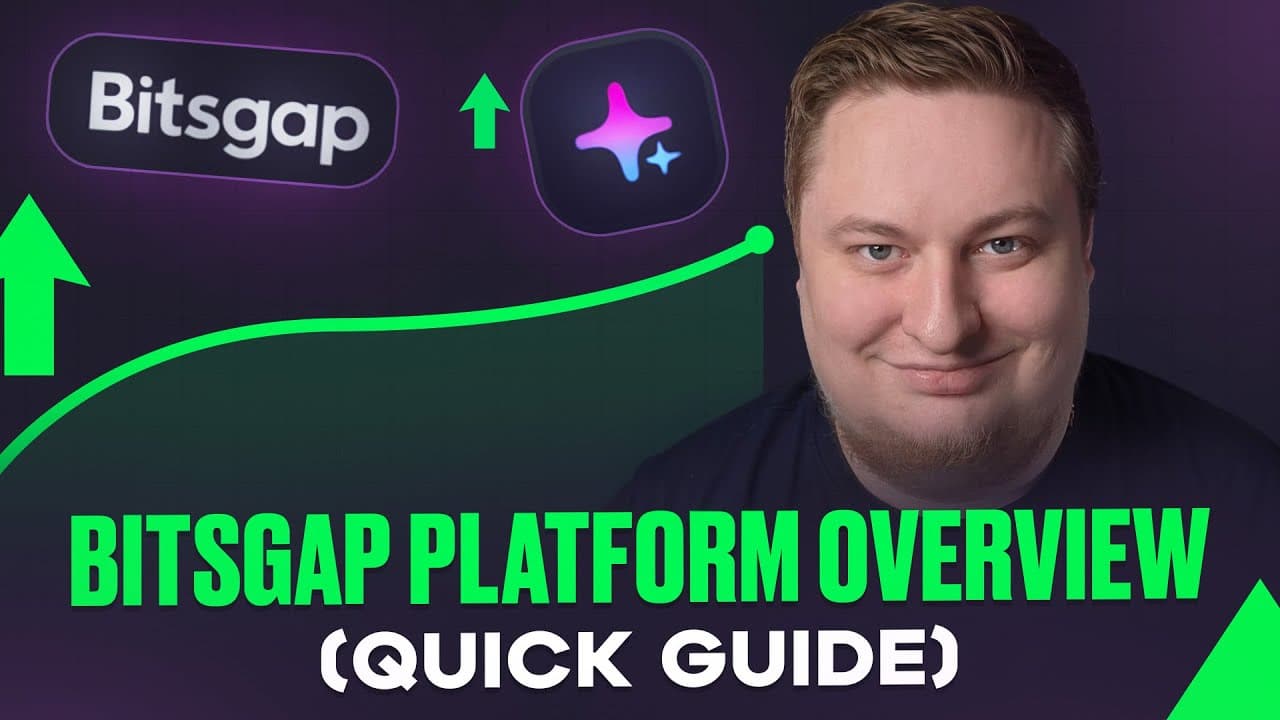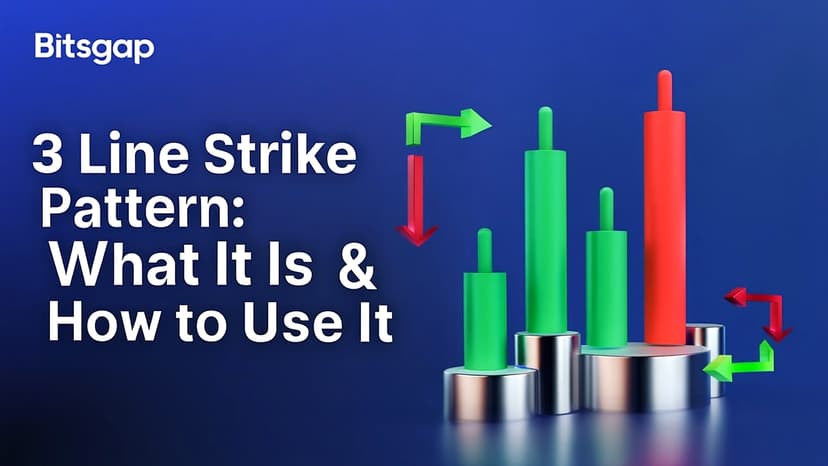Scaled Order
Your Edge in
Feature-rich terminal that delivers an exceptional user experience
A Full Suite for Advanced Crypto Traders
Bitsgap offers advanced trading tools to manage assets and track
performance
across multiple exchanges from a single dashboard.
Unified multi-exchange interface
Trade on 15+ exchanges in one workspace
Access all exchange features (order types/position mode/margin mode)
Switch between exchanges in one click
Spot market features
Track asset purchase prices
Advanced order types: TP, SL, Trailing, and OCO
Effortless spot-futures pair hedge monitoring
Technicals widget
Overview of key technical indicators within the terminal
Simplified decision-making for entry and exit points
Risk-Free Demo Trading Mode
Practice strategies without financial risk
Test trading ideas in real-time market conditions
Learn the platform’s interface and tools
Build confidence before committing real capital
Track and analyze performance to refine your approach
Switch between Live and Demo modes in one click
Trade Crypto Smarter
Master cryptocurrency trading using limit, market, TWAP, scaled, stop market, and stop limit orders. Enhance efficiency and minimize risks.
Limit Orders
- Buy or sell at a specific price or better
- Control your entry and exit points
- Manage costs
- Reduce slippage in volatile markets
TWAP (Time-Weighted Average Price)
- Break large trades into smaller parts executed over time
- Minimize market impact
- Achieve better average prices for large volume trades
Scaled Orders
- Divide a large order into smaller portions at different price levels
- Enter or exit positions gradually
- Improve your average price
- Reduce market impact
Market Orders
- Execute immediately at the best available price
- Prioritize speed of execution over price
- Ensure your trade is filled quickly
Stop Market Orders
- Trigger a market order when a specified price is reached
- Limit losses/protect profits by automatic execution
Stop Limit Orders
- Combine features of stop and limit orders
- Triggering a limit order when a stop price is reached
- Have more control over price (but not execution)
Scaled
Allows to place a grid of up to 100 Limit buy or sell orders in just a few clicks.
Helps to ensure that larger sized trades, are not subject to increasingly deteriorating prices.
A scale order may also be used to get a better average price when entering or exiting a position.
A scale order includes multiple orders at different prices in order to avoid the market impact of issuing one large order.
Scaled
Allows to place a grid of up to 100 Limit buy or sell orders in just a few clicks.
Helps to ensure that larger sized trades, are not subject to increasingly deteriorating prices.
A scale order may also be used to get a better average price when entering or exiting a position.
A scale order includes multiple orders at different prices in order to avoid the market impact of issuing one large order.
800,000+ Happy Traders & Counting
Bitsgap was one the first to automate crypto trading before it became a trend.
Our users have launched more than 4.7 million bots by now.
- $9.46B
- User funds under
management - 11%
- Average profit 30d
return — Grid Bot - $203M
- Total one-year
bot profit
Connect All Your Exchanges in Seconds
Link up 15+ top crypto exchanges in one interface.
Look What Others Say
Secure. Fast. Easy.
- Your funds are secure
- Bitsgap doesn’t have access to funds on your exchange and cannot withdraw them.
- API key is all you need
- Simply connect your exchange account using a secure API connection and get started.
- Fast trading servers
- Our servers are located close to popular exchanges to ensure stable and fast order execution.
Dive Deeper
From latest updates to in-depth guides, we cover it all in our blog.
FAQ
In trading, scaling into or out of positions means adjusting your position size incrementally, which can minimize risk and improve average prices while staying adaptable to market shifts.
To execute a scaled order on Bitsgap, first choose whether you want to buy or sell. Then set your high and low price limits, with sufficient range between them for your desired number of orders. Next, select the number of incremental orders you want across that range, from 10 to 100 levels. Decide the total amount you want to trade in base or quote currency — this will be evenly divided across your order levels. Once configured, click to launch the scaled order.
You can track order status and filled volumes in the Open Orders tab as the market reaches your limit prices. As orders fill, the price range, volumes, and completion percentage will adjust. If needed, you can cancel the high and low orders to stop the scaled order.
Bitsgap’s scaled orders let you methodically enter or exit the market at various price points, leveraging volatility for better average pricing while minimizing market disturbance.
- The trader enters the market with several smaller orders over time to accumulate the full position size, rather than one big entry order.
- Entry and exit points are at various price levels, allowing the trader to get a better average price.
- Scaling happens over an extended timeframe, evident by the trade history showing many smaller transactions.
- For exits, the trader closes the position in portions at different prices, capturing gains at various take-profit levels.
- As the price moves, stop losses are adjusted to protect open profits.
On platforms like Bitsgap that support scaled orders, scaling is visible through:
- The order book showing multiple orders at incremental price points.
- Active orders displaying numerous open orders across a range of prices.
- Trade history reflecting a pattern of small entries or exits, not big singular trades.
In summary, scaling is a strategic approach to manage risk and optimize pricing by incrementally adjusting position size over time and price. It contrasts with less cautious strategies of just buying or selling the whole position at one price in a single trade.
Scaling can certainly be used for day trading. To manage risk and optimize profits within their short holding periods, day traders will frequently scale in and out of positions throughout the trading session.
The general concept of scaling remains the same — gradually building or reducing position size rather than all at once. But with day trading, scaling happens at an accelerated pace over minutes or hours instead of days or weeks.
Intraday scalers may start small to assess conditions, then methodically increase their position as prices move favorably. To exit, scaling day traders may sell portions along the way to lock in gains instead of liquidating everything at day end.
Executing scaled orders quickly allows day traders to nimbly adjust sizing and risk as volatility fluctuates. While fast-paced, scaling principles still apply as an effective strategy for prudent intraday position management.
While related to position sizing, scaling and leveraging are distinct strategies. Scaling incrementally builds or reduces a position to control risk, minimize market impact, and improve pricing. Leveraging utilizes borrowed funds to increase buying power and magnify potential gains and losses.
In essence, scaling spreads out trades to manage execution, while leveraging amplifies positions by expanding purchasing power through debt. Scalers enter and exit gradually based on conditions. Leveragers take on greater financial risk and volatility pursuing larger returns.
Scaling aims for optimized trade mechanics. Leveraging seeks multiplied profits through increased exposure funded by borrowed capital.
Scaling structures trades themselves. Leveraging facilitates bigger positions with borrowed money. One focuses on execution, the other on risking debt to increase potential profits and losses. Understanding their differences allows strategic application.
Try Bitsgap’s PRO plan free for 7 days, pick a plan later























